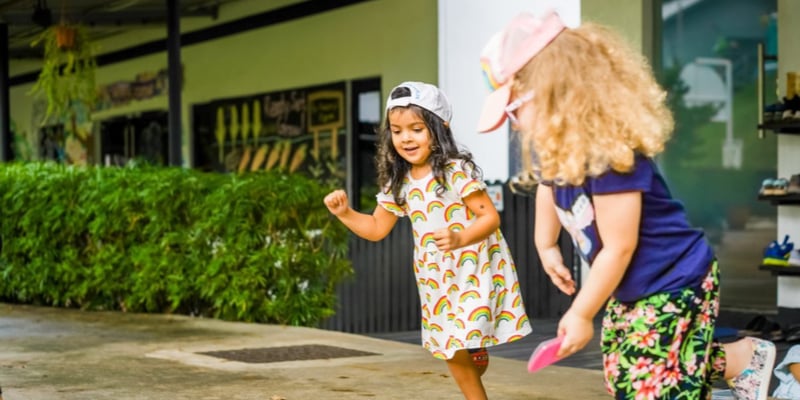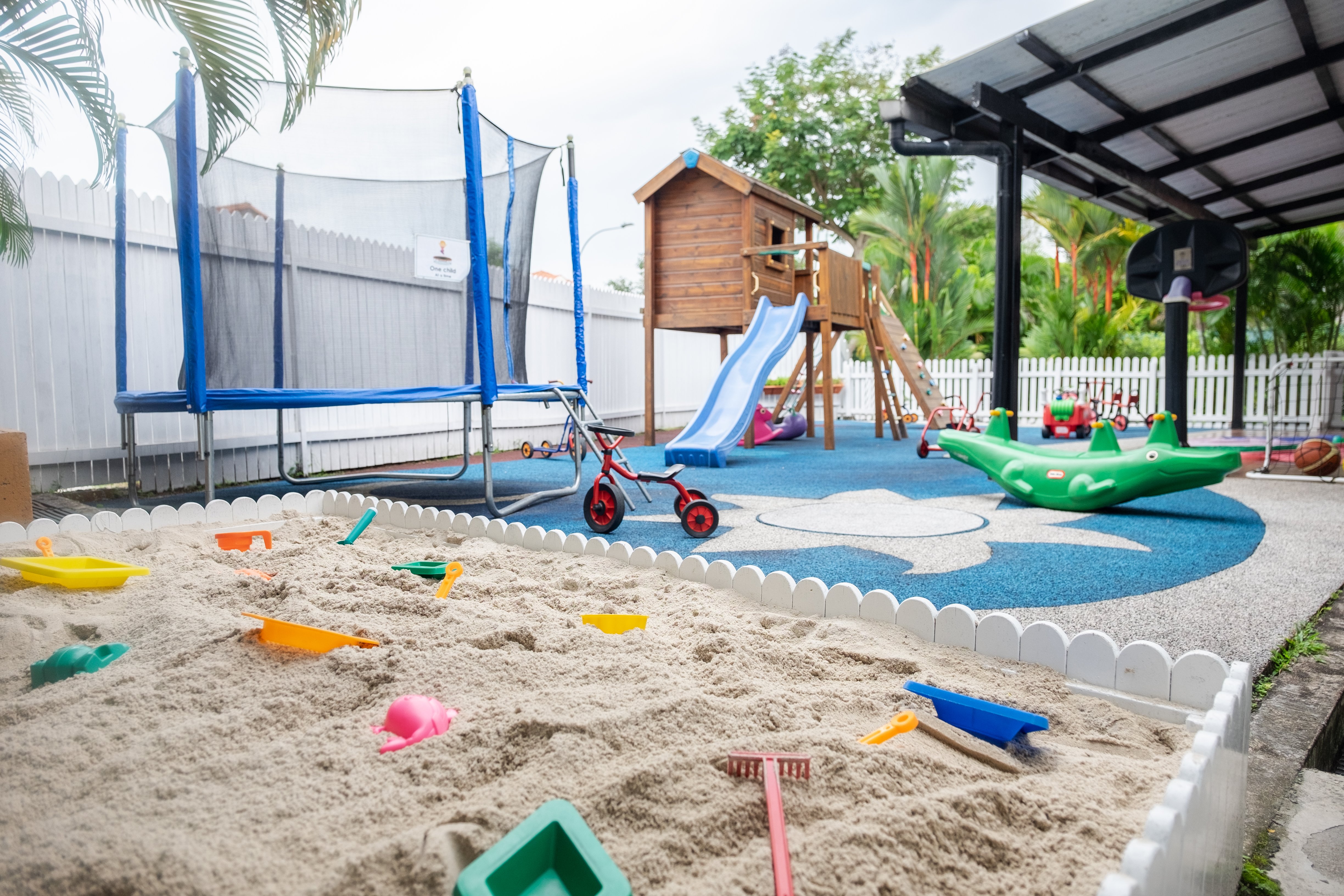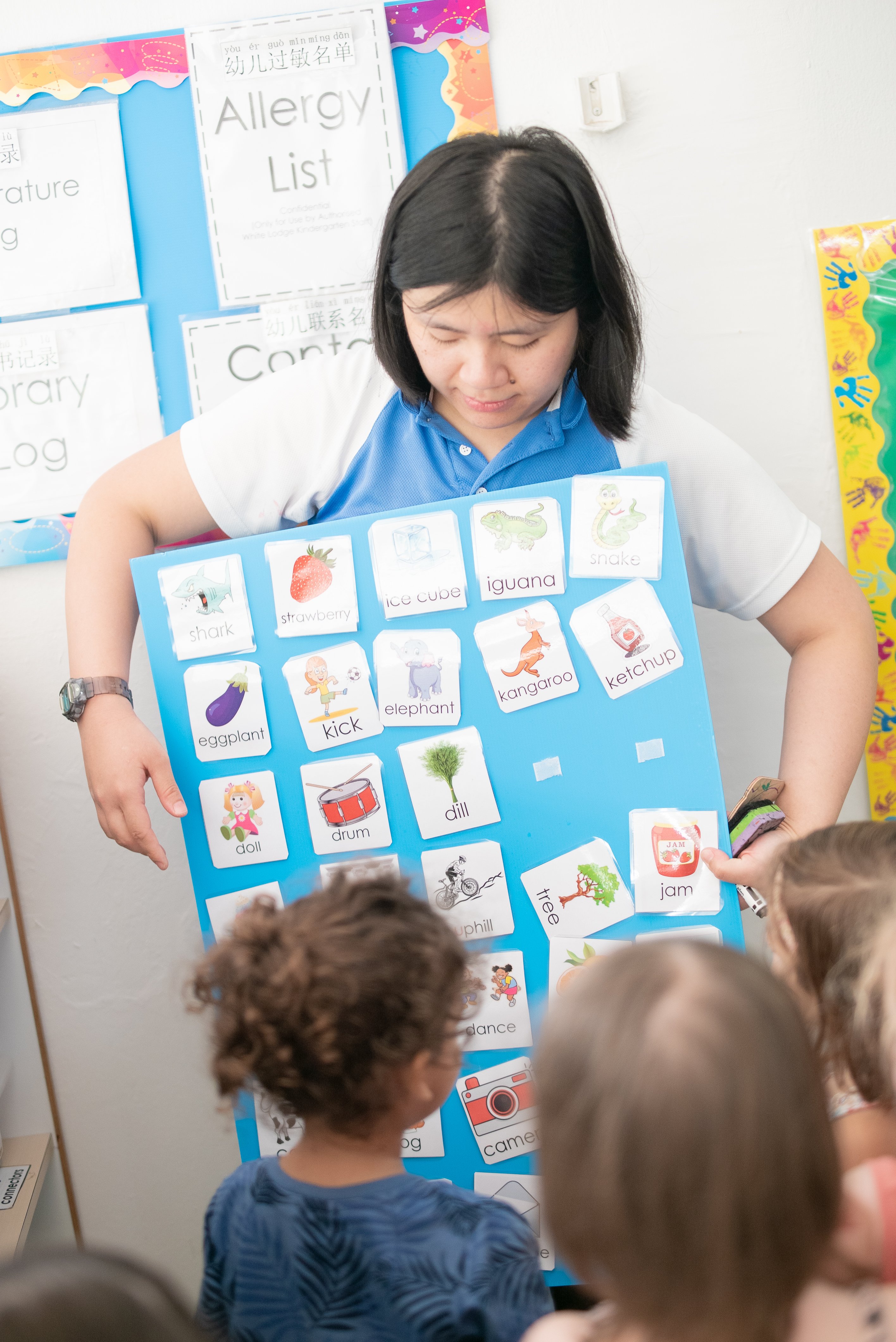A tearful goodbye is usual for the first day of preschool. Whilst separation anxiety is a perfectly normal part of childhood development, it can be unsettling. So, how can you help your child cope with separation anxiety and ease their fears? In this blog, we share a few strategies that will enable you to help your child overcome separation anxiety and reduce your sense of disquietude.
Understanding separation anxiety and the signs to look out for
Separation, or the threat of separation, from the parent or attachment figures provokes anxiety in young children, and it is a normal part of early development. The experience helps children understand relationships and develop their social and emotional skills. It usually ends around 2 years old, when toddlers begin to understand that a parent may be out of sight right now but will return later. Young children, being pre-verbal, express their anxiety in multiple ways through crying, clinging to their primary caregiver, resisting attention.
Sometimes children can display regression in their behaviour. Separation anxiety can be triggered due to a disruption in routine, for example, when children are away from preschool due to illness or holidays is key when it comes to potty training your child. It is crucial to start training your child when they are ready. Whilst there is no set time for this (as each child is different), there are various signs that indicate your child may be ready. For instance, your child has started walking, can sit down for long periods of time, has dry nappies for up to two hours and displays gestures that they need to use the toilet. These all highlight early stages of independence.
Although separation anxiety is normal, it is important to be aware if it becomes excessive and interferes with your child’s day to day activities in preschool, their interaction with friends, or lasts for several months, it could be a sign of separation anxiety disorder.
Understanding parental separation anxiety
Children are not the only ones affected by separation anxiety, it can be an unsettling experience for parents too. The key is to address your anxieties and understand how this can feed into your child’s. Parents often feel guilty for leaving their child when they are crying. But, it is important to be cognizant that the more secure you feel when leaving them at preschool, the faster your child will settle in.
Do bear in mind is that your child’s unwillingness to leave you is a beautiful sign that healthy and meaningful attachments have been developed between you and your child. Some things you can do to help ease your anxieties:
- Confide in someone close to you and talk about your feelings.
- Meet your friends, partner or a family member after the drop off, if you feel you need that support.
- Get to know the teachers in advance by visiting the preschool so you are at ease when dropping your child.
- Call the preschool to find out how your child is doing, if needed.
“The teachers at White Lodge helped a lot to make us feel comfortable. The active involvement of the management is another strength. You can always talk to them if you need to and they are very approachable and very willing to help you if you have a problem.”
Mayali Jayasinghe, Mum to Rheyan and Shanouk
Check out more parent testimonials here.
Tips to help your child overcome separation anxiety
- Visit the preschool in advance – this will mean the environment is familiar to your child before they begin attending. Check with the preschool if they offer a trial or orientation. This in-class session will help both you and your child understand the approach to learning and familiarise yourself with the setting. For more information on what to look out for when visiting a preschool, download our Ultimate Preschool Checklist.
- Don’t let your child see that you are suffering from separation anxiety – your child will pick up your feelings. They might feel unsafe or scared if they see that you are hesitant to leave them. Instead, emphasise how much fun they will have at preschool and be cheerful.
- Let a relative, friend or neighbour drop them off – see if this leads to a change in their behaviour (children are more likely to be well-behaved for others).
- Establish a quick goodbye routine and be consistent – remind your child you will be back soon, prolonging the goodbye will only make it difficult. Doing this regularly can help your child get used to the drop off process.
- Don’t sneak out – disappearing suddenly can make things worse. Say goodbye and let them know you’ll be back at a certain time to pick them up.
- Talk about the positive experiences in school at home – this will help you reconnect with them. Ask them about the day’s highlights or talk about something new your child learned.
- Let them bring something from home – e.g. a comfort toy, blanket or photo.
- Don’t be late for pick up – this could make drop offs harder.
- Acknowledge their fears and anxiety – instead of brushing it away, talk through what they are feeling and why. Remind them that this is normal or share a relevant story. Showing them that you care and understand goes a long way in reassuring young children and is a key aspect in overcoming separation anxiety.
- Introduce your child to preschool books – this can help ease their transition in a fun and engaging way. Examples include:
- Chu’s First Day of School – Neil Gaiman
- I’ll Never Let You Go – Marianne Richmond
- Kissing Hand – Audrey Penn
- Llama Llama misses mama – Anna Dewdney
- Maisy goes to Preschool – Lucy Cousins
- My first day at Nursery school – Becky Edwards
- I love school – Philemon Sturges
A new adventure such as starting preschool can be daunting for both children and parents, particularly the transition from home to a classroom-based environment. But that does not mean that overcoming separation anxiety is impossible. Ensure your child understands that you’ll always return after you leave (this will be a huge comfort while you are gone). Remember, although separation anxiety can be unsettling and painful, the process gives your child a chance to develop independence and emotional control.
Get in touch with White Lodge today to help your child derive the greatest value, pleasure and fulfilment from their childhood!












